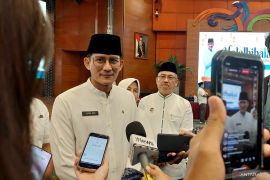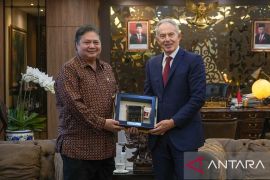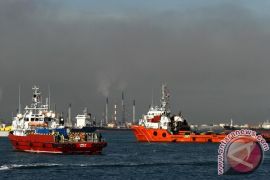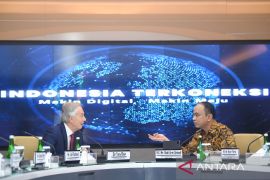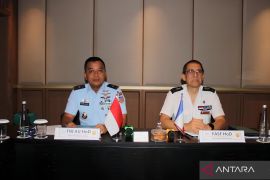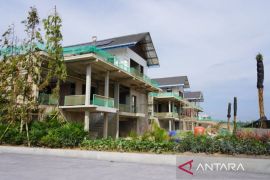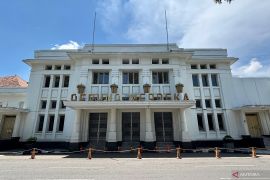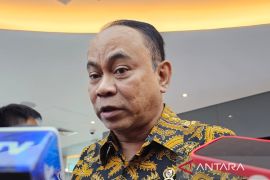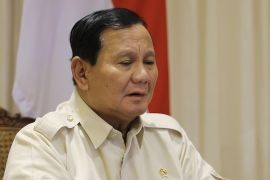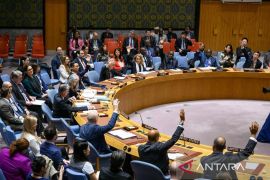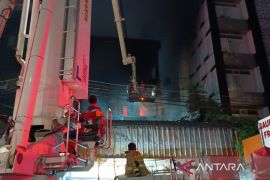The trip that started on May 3 is a part of the media trip program named `ASEAN-China Media Trip`, in light of the 21st Century Maritime Silk Road initiative.
The visit was initiated by the ASEAN - China Center (ACC), which is a non-governmental organization that was established to promote the cooperation between both parties through trade, investment, education, culture, tourism and media.
The ACC had established a partnership with China Report, a media institution that had been around since 1950 and has transformed from traditional media into one that is digitally based.
The trip started in Shanghai, the biggest city in China that is also its center for economic activities, followed by a visit to the cities surrounding it, including the industrial city of Jiaxing, Shaoxing, Hangzhou and ended in Wuxi, the city that is deemed as the `Pearl of Taihu Lake` for its natural beauty and cultural heritage.
In Wuxi, all series of activities in the media trip was closed by the ASEAN-China Media Cooperation Forum that was the first event in the media cooperation sector.
For the event, the ACC cooperated with not only the China Report, but also the Provincial Government of Jiangsu.
The visitation program was the fourth one to be carried out, bearing a different theme from the other three that was held previously.
The media safari series of activities started with a visit to a number of institutions in Shanghai, from the Free Trade Zone in Shanghai, International Import Expo, paying the Shanghai United Media Group a visit, meeting officials of the Shanghai City Government, visiting the Fudan University and touring around the Wukang Road, the historic lane with a set of Western architectures that is still well maintained.
After three days in Shanghai, the trip continued with a journey down to the city of Jiaxing in the Zhejiang Province to directly take a look at the sophisticated technology in Wingtech Communication, a company that works in the production of smart phone components and the Institute of Future Technology. After one day in Jiaxing, the journey continued to the South Lake, a historic place where the Chinese Communist Party first held their congress.
In order to see China`s advancement in the textile sector, the entourage were taken to the garment product exhibition in the city of Shaoxing, 200 kilometres south from Shanghai. In the exhibition there were a lot of potential buyers from different regions, including the Middle East, West and South-East Asia which include Indonesia as well.
"Out of all of our customers, most of them are from Indonesia. In fact, we just made a transaction with our Indonesian customers," said Manager of Shaoxing Mulinsen Trading Co. Ltd, one of the hundreds of participants in the event.
The journalists were also given the opportunity to take a look at China`s education sector as they were directed to the Hailiang Group in the city of Shaoxing.
Aside from working in the copper processing as its main business, the Hailiang Group also expanded its business to the education sector under the name Hailiang Education.
The company is focused on education in the Kindergarten, Primary School, Middle and High School levels, as they aim to prepare a high quality generation with wholesome education that is internationally recognized.
The main target for Hailang`s education sector is to prepare students to be able to compete and acquire their spot in a number of well-known universities, both in China or overseas.
However, the most interesting part of the entire journey was the visit to the Alibaba Group headquarters in Hangzhou, which is the capital of Zhejiang Province.
The Group was founded in 1999 and is currently the second biggest internet-based retail company in the world and the fourth biggest I.T. based company in the world, only after Apple, Google and Microsoft.
In September 2014, Alibaba Group recorded its milestone as it carried out Initial Public Offering (IPO) for their share in the New Stock Exchange and gained 230 million US Dollars in a matter of one day.
Media Approach
The core of the media trip is China`s efforts to strengthen relations with the ASEAN region, which has been deemed as the world`s sixth most powerful economies with a total of 500 million populations, through the media.
China`s ambition to resurrect the Silk Road has inspired President Xi Jinping to declare a re-opening of the road in 2013, and the media`s role is rather vital in order to support and inflame the spirit.
Distinct from the ancient Silk Road, Xi Jinping addresses it as the `Silk Road Economic Belt and the 21st Century Maritime Silk Road`, which aim to create a number of economic corridors that connects more than 60 countries in the world, including the ASEAN countries.
Since the initiation of the China-ASEAN cooperation 15 years ago, China saw that the ASEAN is the most important region in developing the Silk Road and the Maritime Road, compared to other regions in Asia.
To Indonesia, for example, China is an important trade partner with a trade value that continue to grow from year to year. One of the cooperation that is taking place at the moment is the construction of the Jakarta-Bandung Speed Railway.
The Chinese government realized that cooperation in various sectors with ASEAN member countries require socialization through reporting on mass media. The public need to know what had been achieved and the benefits that the could reap from the cooperation.
Cooperation through the media sector, which could be carried out through a mutual visit between both countries is a soft power approach that China sought to implement in order to support the Silk Road Maritime Road program.
The media from the ASEAN were made to acquire good impressions with the advancements that had took place in China and report such achievements in their respective countries.
The media is indeed an appropriate means of disseminating information about everything that happens in China, as well as what is happening in ASEAN countries.
Senior journalist Recto Mercene from the Philippines believed that the media travel to China needed to be welcomed and did not need to be addressed with various presuppositions, as it is basically very beneficial to both parties.
However, because the cooperation is expected to be on a take and give basis, as the China expected the ASEAN media to also offer them something.
"As a first step, I think this program is very good, at least the two parties are trying to find a more appropriate pattern for the implementation of the next cooperation program," said the 74-year-old man.
According to Mercene, one way that can improve media cooperation is to exchange journalists, not just to do the coverage, but also directly plunge into the community and live with local residents for a certain time.
During the stay with local residents, the media from ASEAN member countries can see firsthand on how the society go on about their days and their way of life, which can then be turned into an interesting story.
On the other hand, reporters from China could live together with the residents of one of the ASEAN countries. In this way, there will be a relationship between society and society, not just in the order of government officials or entrepreneurs.
"May China remain a friendly country, that seeks nothing but peace and a desire to find the right place within the ASEAN community," he said.
Reported by Atman Ahdiat
(UU.KR-ARC/B003)
(UU.KR-ARC/A/KR-BSR/B003)
Reporter: Atman Ahdiat
Editor: Heru Purwanto
Copyright © ANTARA 2018

